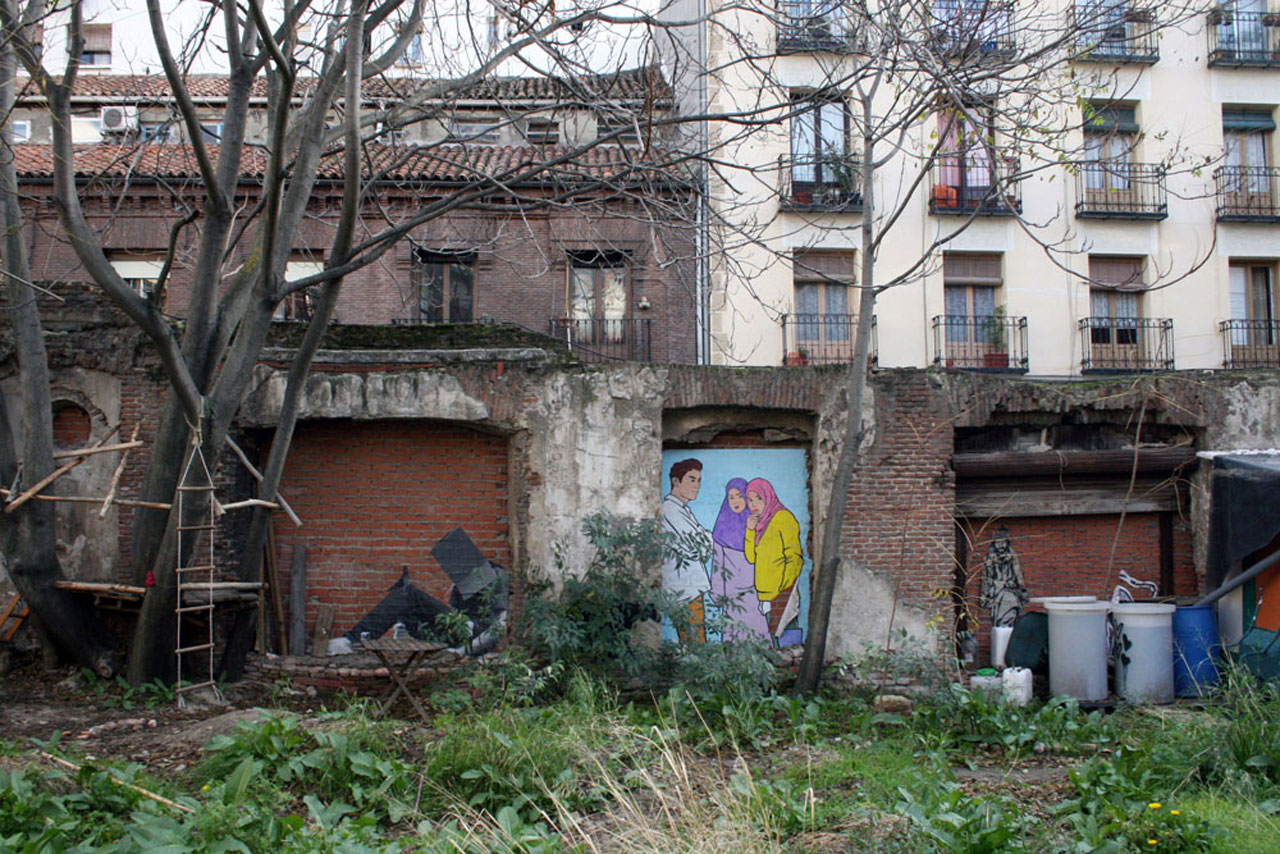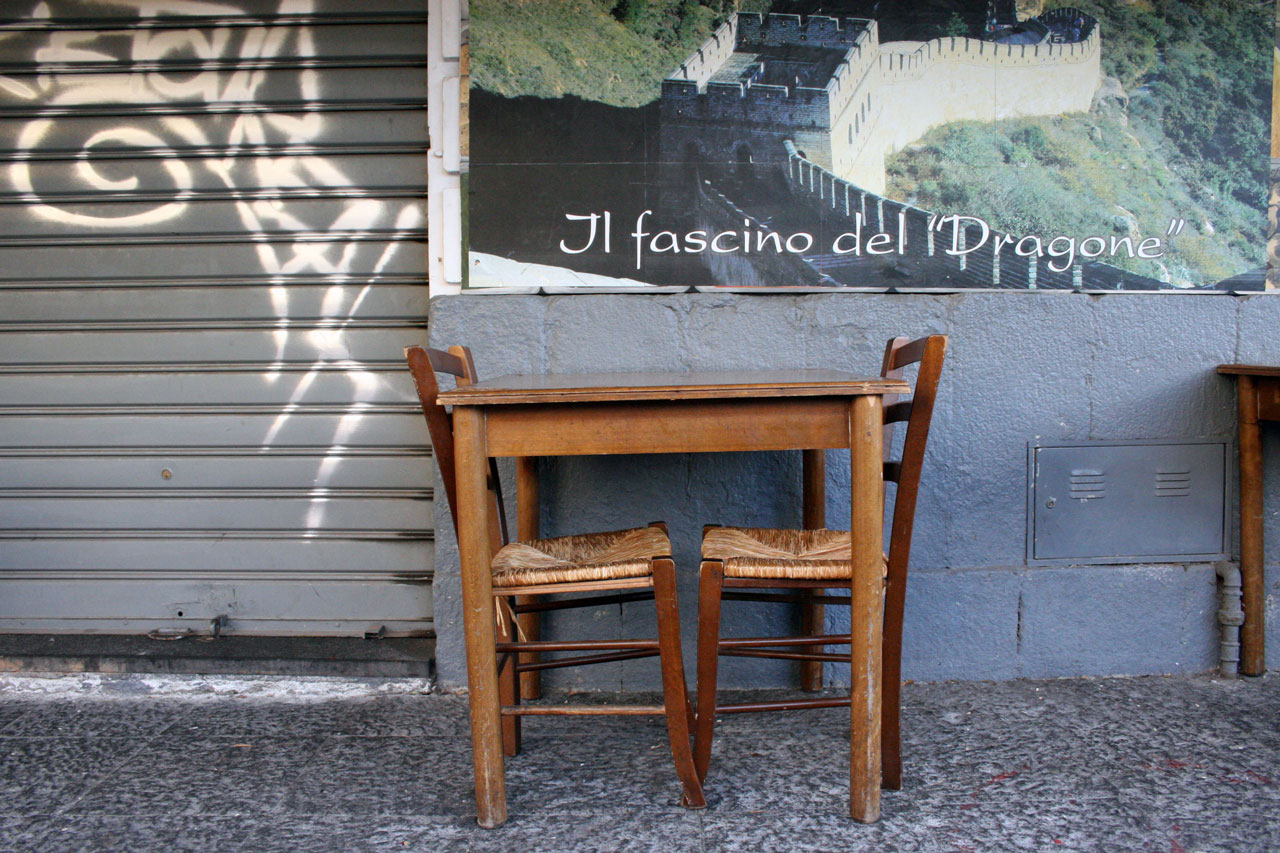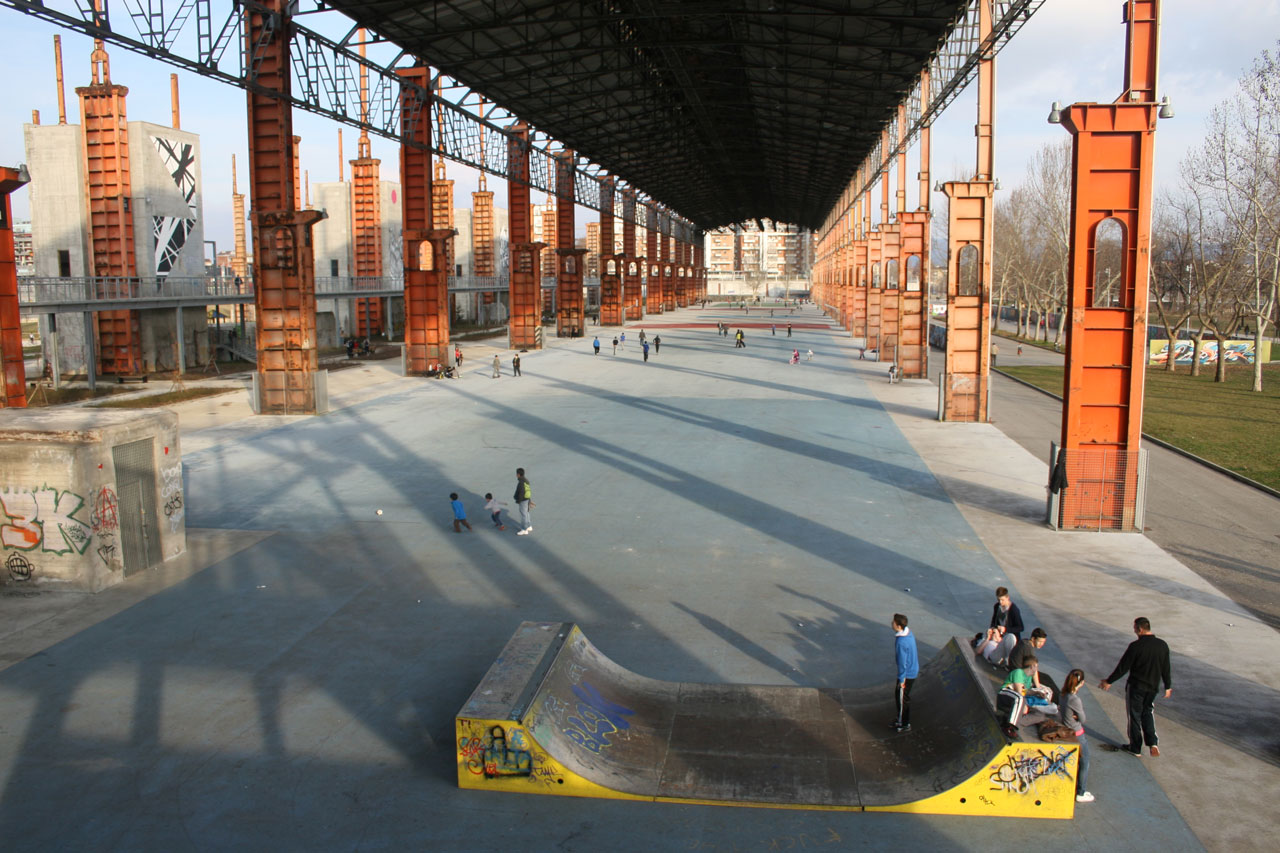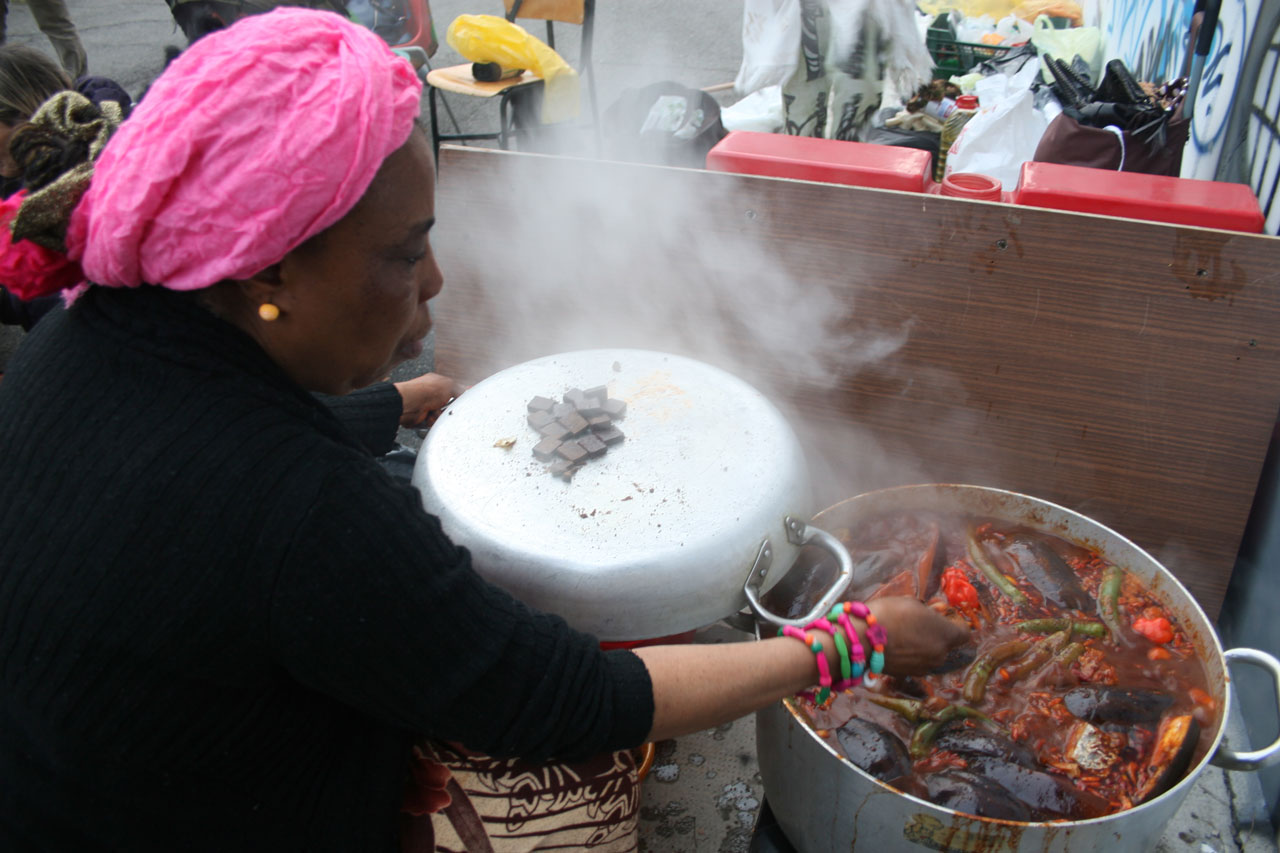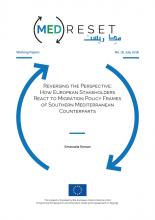IT. Questo rapporto fa parte del work package su migrazione e mobilità (WP7) del progetto MEDRESET e studia come gli attori istituzionali e della società civile europea inquadrano e valutano le politiche migratorie dell’UE nell’area mediterranea. Basandosi su una serie di interviste in profondità, il rapporto analizza come gli attori europei descrivono l’approccio generale dell’UE alla cooperazione con i paesi terzi mediterranei nel campo delle migrazioni; come valutano le più recenti e rilevanti politiche dell’UE in quest’ambito; e quali sono a loro avviso gli attori chiave in questo settore di policy. Gli attori della società civile europea dimostrano di condividere le opinioni critiche espresse dai loro omologhi della società civile in Libano, Marocco, Tunisia e Turchia. Descrivono il discorso dell’UE come securitario ed eurocentrico, sottolineando anche come questo si traduce in politiche e pratiche securitarie, eurocentriche e basate sul principio di condizionalità. Lamentano la mancanza di opportunità di migrazione legale, ma allo stesso tempo elogiano la Commissione europea per i suoi sforzi in quest’ambito. Criticano anche la mancanza di politiche di genere nel settore delle migrazioni e il coinvolgimento limitato delle organizzazioni della società civile dei paesi della sponda sud nei processi decisionali relativi alle politiche migratorie e di asilo. Il documento esplora anche possibili risposte politiche alternative, esaminando i pro e i contro di una governance più partecipativa della migrazione dal punto di vista sia dei funzionari UE che degli attori della società civile europea.
EN. This report is part of the MEDRESET WP7 and investigates how European institutional and civil society actors frame and assess EU migration policies in the Mediterranean area. Based on extensive in-depth interviews, the report analyses how European actors describe the overall EU approach to cooperation with Mediterranean third countries in the field of migration; how they evaluate the most recent and relevant EU policies in this field; and which are the actors that they identify as key players in this policy area. European civil society actors proved to share the critical views expressed by their civil society counterparts in Lebanon, Morocco, Tunisia and Turkey. They described the EU’s discourse as securitizing and Eurocentric, highlighting that it also translates into securitizing, Eurocentric and conditionality-based policies and practices. They lamented the lack of legal migration opportunities, but at the same time they praised the European Commission for its efforts in this field. They also claimed the lack of gender-sensitive or gender-specific policies in the area of migration and the limited involvement of SEM CSOs in migration policymaking.
The paper also explores possible alternative policy instruments, looking into the pros and cons of a more participatory governance of migration from the perspective of EU officials and civil society actors.

